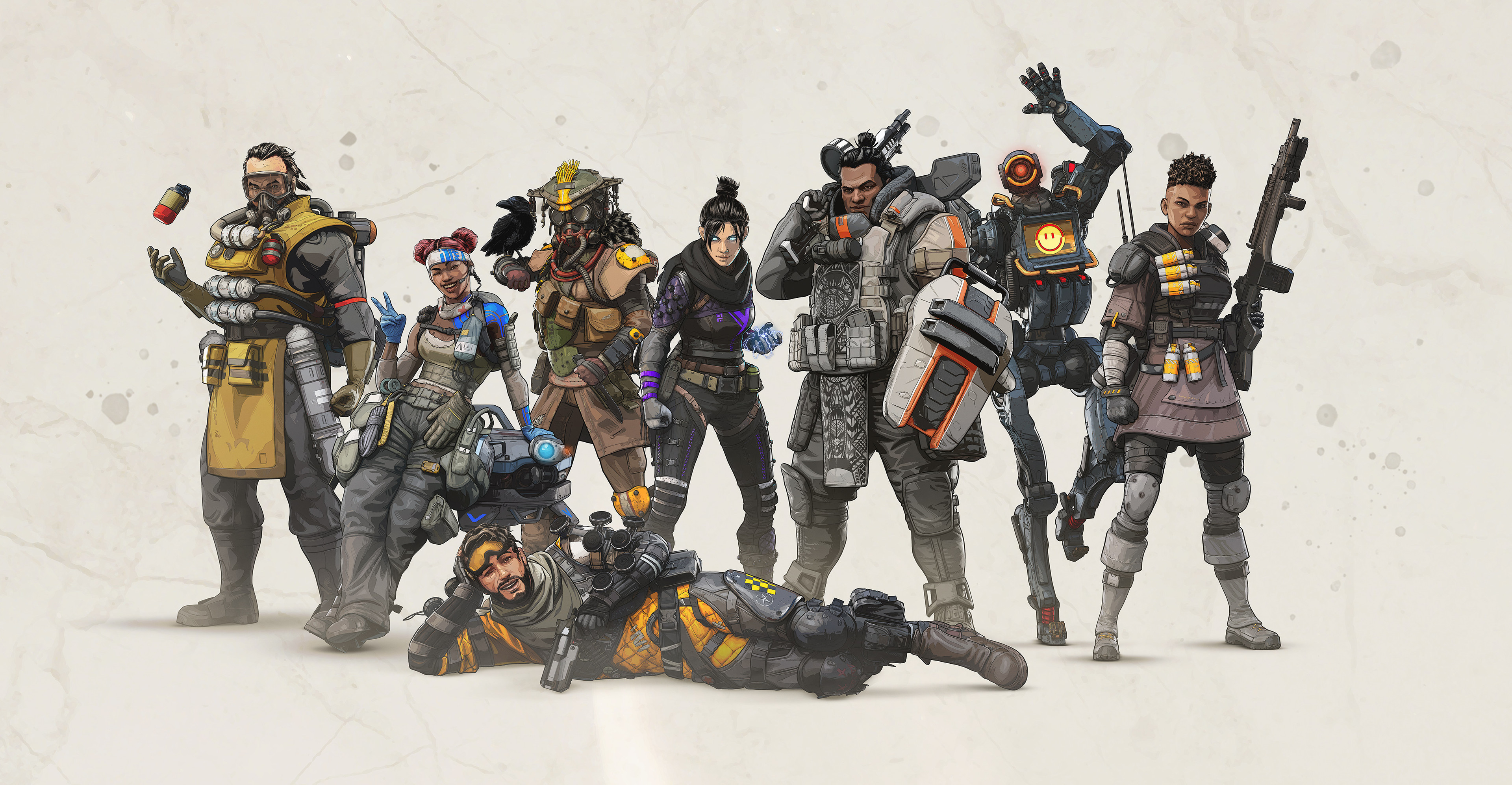Apex Legends tournament disrupted by rogue RCE exploit hack
The North American finals of the Apex Legends Global Series (ALGS) are on the backburner—for now.

Sign up for breaking news, reviews, opinion, top tech deals, and more.
You are now subscribed
Your newsletter sign-up was successful
The Apex Legends Global Series (ALGS) North American finals concluded with a bang this weekend—but the twist in the tale was one nobody expected (or wanted). Partway through the regional event, players were targeted by hacks that disrupted the "competitive integrity" of the match, resulting in the final stage of the tournament being postponed.
Shortly after the incident, speculation arose as to the source of the attack, with questions being asked about the Easy Anti-Cheat software. Epic Games has since released a statement claiming that there is no relation between the remote hack and the EAC.
"We are confident THERE IS NO RCE vulnerability within EAC being exploited."
Due to the competitive integrity of this series being compromised, we have made the decision to postpone the NA finals at this time. We will share more information soon.March 18, 2024
Calling the shots
The tournament was well underway when DarkZero's Noyan Ozkose (AKA Genburten) and TSM's Phillip Dosen (AKA ImperialHall) were struck with RCE hacks which allowed a bad actor to interfere directly with the game.
Ozkose and Dosen's cheats were suddenly and unexpectedly enabled. Oskoze was able to see the position of enemy players through the walls and odd messages ("Apex hacking global series by Destroyer2009 & R4ndom") scrolled across the screen during the action. Oskoze reacted quickly, taking his hands off his keyboard and alerting his team to the issue.
Similarly, when Dosen aimed at a target, it was with the help of an aimbot—though he hadn't enabled the cheat himself.
Respawn canceled the match in response to the incidents, citing that the competition had been compromised, and postponed the NA finals. More information on the rescheduling is set to follow in due course.
Exploring the anti-cheat exploit
Naturally, speculation ran rampant on Twitter, with players and spectators wondering how such a prominent tournament could be blown off course by REC hacks. The volunteer group Anti-Cheat Police Department joined the conversation, warning players that their personal information could be at risk unless they took specific measures—like refreshing old passwords and reinstalling their operating systems.
The Anti-Cheat Police Department posited that Easy Anti-Cheat, the security system used by Apex Legends, was a possible cause of the issue. The group believes that the EAC could be co-opted by bad actors and used to inject hacks into streamer PCs or infect them with ransomware.
Epic Games has refuted this claim, however, stating that:
“At this time – we are confident that there is no RCE vulnerability within EAC being exploited. We will continue to work closely with our partners for any follow up support needed.”
A problem to solve
So, how can similar incidents be prevented? The last thing any pro player wants during a high-stakes tournament is to be targeted by a remote hack—and casual players might wonder if the same threats could impact their games, too.
Gaming VPNs certainly have their uses, especially if you’re looking to put a stop to DDoS attacks, but they can’t guarantee protection from remote exploits. However, VPNs can make it much more difficult for bad actors to target you in the first place.
By masking your original IP address and routing your DNS requests through an intermediary, VPNs provide an extra layer of security when you’re gaming online. A cybercriminal would have to work a lot harder to get hold of your identifiable details.
Still, a VPN isn't a guarantee of total digital protection—particularly if you’re worried about ransomware. NordVPN has its very own security suite, with malware-detection tools, and prevents downloads from occurring on the sly. That’s handy, but VPNs aren’t the best safeguard against more stubborn digital threats: think viruses, ransomware, malware, and other digital nasties.
The best antivirus software can help you out, however, with real-time protection and scans that aren’t just browser-based.
Sign up for breaking news, reviews, opinion, top tech deals, and more.

River is a Tech Software Editor and VPN expert, helping take care of cybersecurity content on TechRadar, ranging from reviews, buying guides, and must-have VPN deals. River's expertise in the cybersecurity field opened their eyes to the startling amount of online snooping we accept into our daily lives. Now, River is committed to fighting for your right to digital privacy by shining a light on its biggest threats – and helping readers safeguard their data with the help of a VPN. Surfshark is River's favorite VPN, and they use it every day to keep their most sensitive details out of the hands of third-party trackers.
